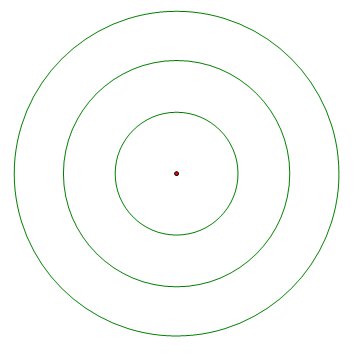I have been practicing a science called ‘Kundalini Gnanam’ for the past 8 years and it never ceases to amaze. What is thought as relevant yesterday lies in tatters today. What I thought was right is no longer right. Right is not relevant anymore.
Recently I had the chance to visit my Guru for 3 uninterrupted days and that helped me clear a lot of air. First and foremost I was increasingly losing my sense of direction in the last couple of months. My sense of discipline and my understanding of what I should do were both suffering. Days in and days out, I was increasingly getting frustrated that I was not doing what I wanted to do and I was getting further perturbed by the course of events. It was a negative loop and I suffered further due to my habit of not speaking to my Guru in such phases. Then it happened.
Arun, one of my buddies, called me out of the blue and told me that he was done with it (metaphorically and meaning of ‘it’ does not matter) and he had made up his mind to visit our Guru for a whole week. He wanted to meet and asked me to plan. Cutting a long story short, I was there for 3 days with my Guru. All kinds of things happened in those 3 days.
First and foremost, I understood the importance of Guru – Bhakthi. While in popular parlance, it would mean thinking about the Guru and worshiping him, for me it took on a deeper dimension. For me it meant understanding what he wants his students and disciples to do. A Guru wants nothing less than all of his students becoming a Guru themselves. This is a unique aspect of ‘knowledge’. It is one of the few assets, which makes the one who possesses it, want to share with as many people as possible. If one has to become a Guru then one must want to teach. For one who wants to teach, one must possess knowledge. To possess knowledge, one must research. The word research is beautiful isn’t it?
You have to re – search. The way I understand it is that you must probably abandon all that you hold true today and start from the beginning. The way I see it, religious people are not truly spiritual. Particularly the ones deeply embroiled in symbolic rituals and everyday ablutions. This has nothing to do with what they do and more to do with their outlook. They have accepted that this is it and have left it at that. The spiritual aspirant’s foremost quality would be to accept nothing as it is and question everything. Because they day one says this is it, he or she stops learning and is for all practical purposes, non-existent. Life is energy and energy that stagnates is more or less dead. As Vivekananda once said, the atheist is more religious than the Brahmin who unerringly performs pujas everyday.
So to me Guru – Bhakthi would also mean to tirelessly pursue the knowledge which will help me understand things better. The Spiritual Masters say that there is a knowledge which will be sweeter than forest honey. There is a knowledge which is ageless and timeless. There is a knowledge which will change the whole plane of existence. To me Guru – Bhakthi would mean to seek it with the same sense of urgency as a deer which just escaped from the hunter’s nest. It would mean to search it with the same emotions as the desert nomad who is thirsty and sees a mirage for the nth time.
This would take time and ceaseless effort. But like Lao Tse said – ‘The journey of a thousand miles starts with a single step’. Please start, my friend. Start today. Start now.
Filed under: Existence, Meditation, Rumination, The WHY | Tagged: GURU | Leave a comment »


 There have been numerous interpretations for the word meditation. I am sure you would have a fair idea of your own. I have something to say with respect to my understanding of mediation.
There have been numerous interpretations for the word meditation. I am sure you would have a fair idea of your own. I have something to say with respect to my understanding of mediation. 


